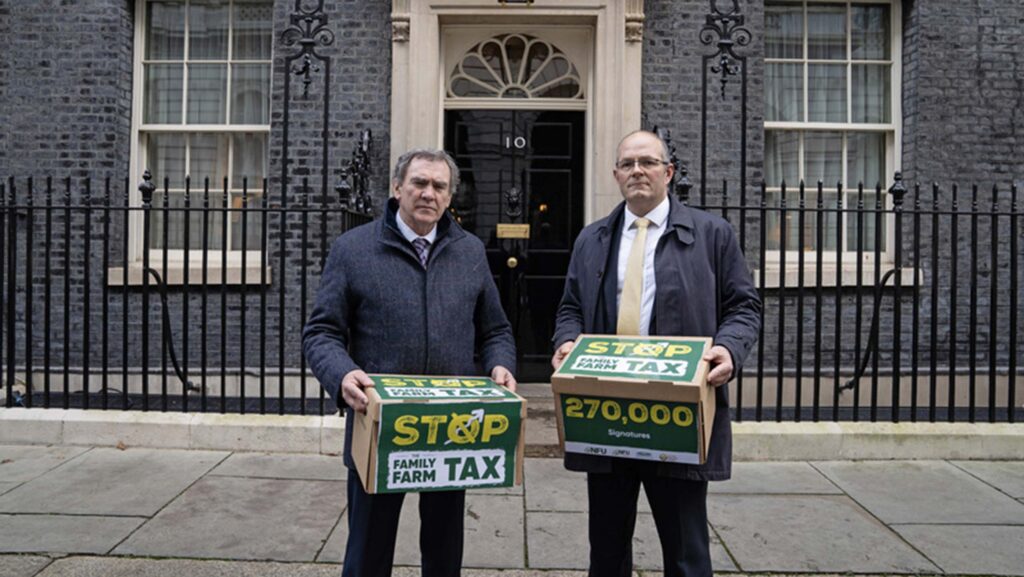NFU leaders deliver 270,000-strong IHT petition to Downing St
 Aled Jones (left) and Tom Bradshaw deliver the petition © NFU
Aled Jones (left) and Tom Bradshaw deliver the petition © NFU NFU president Tom Bradshaw and NFU Cymru president Aled Jones, representing the four UK farming unions, have handed over a petition at 10 Downing St, signed by more than 270,000 members of the public and calling on the government to scrap its proposed family farm tax.
The petition urges a re-evaluation of changes to agricultural property relief (APR) and business property relief (BPR) announced in the Autumn Budget.
The NFU says the changes, part of the government’s planned inheritance tax reforms, are set to affect up to 75% of working farms, with some farmers facing tax bills in the hundreds of thousands of pounds.
See also: Efra chairman urges PM to review family farm tax plans
With farmers already struggling with inflation, rising production costs and extreme weather events, the proposed tax changes could push many farm businesses to breaking point.
Earlier this week, analysis by the Office for Budget Responsibility highlighted that the changes would disproportionately affect elderly farmers, leaving them with little time to adjust.
The unions warn that this could lead to the loss of family-run farms and threaten UK food security.
Mr Bradshaw said: “It gives us great strength to know the public is backing British farming at this critical time.
“The government has woken a sleeping giant. We will not stop fighting for our farms, families, and food.”
Day of unity
The four farming unions will host a national day of unity tomorrow (Saturday 25 January), with hundreds of events across the UK aimed at gathering more public support.
Farmers will gather in towns and cities to thank the public and continue their campaign for a fairer tax system.
Mr Jones added: “The policy threatens the future of family farms, with the potential to destroy generations of hard work.
“The government must listen to farmers and address our concerns before it’s too late.”
The UK government has yet to respond to calls for a broader consultation on the inheritance tax changes, despite growing opposition from the farming community and other stakeholders.
